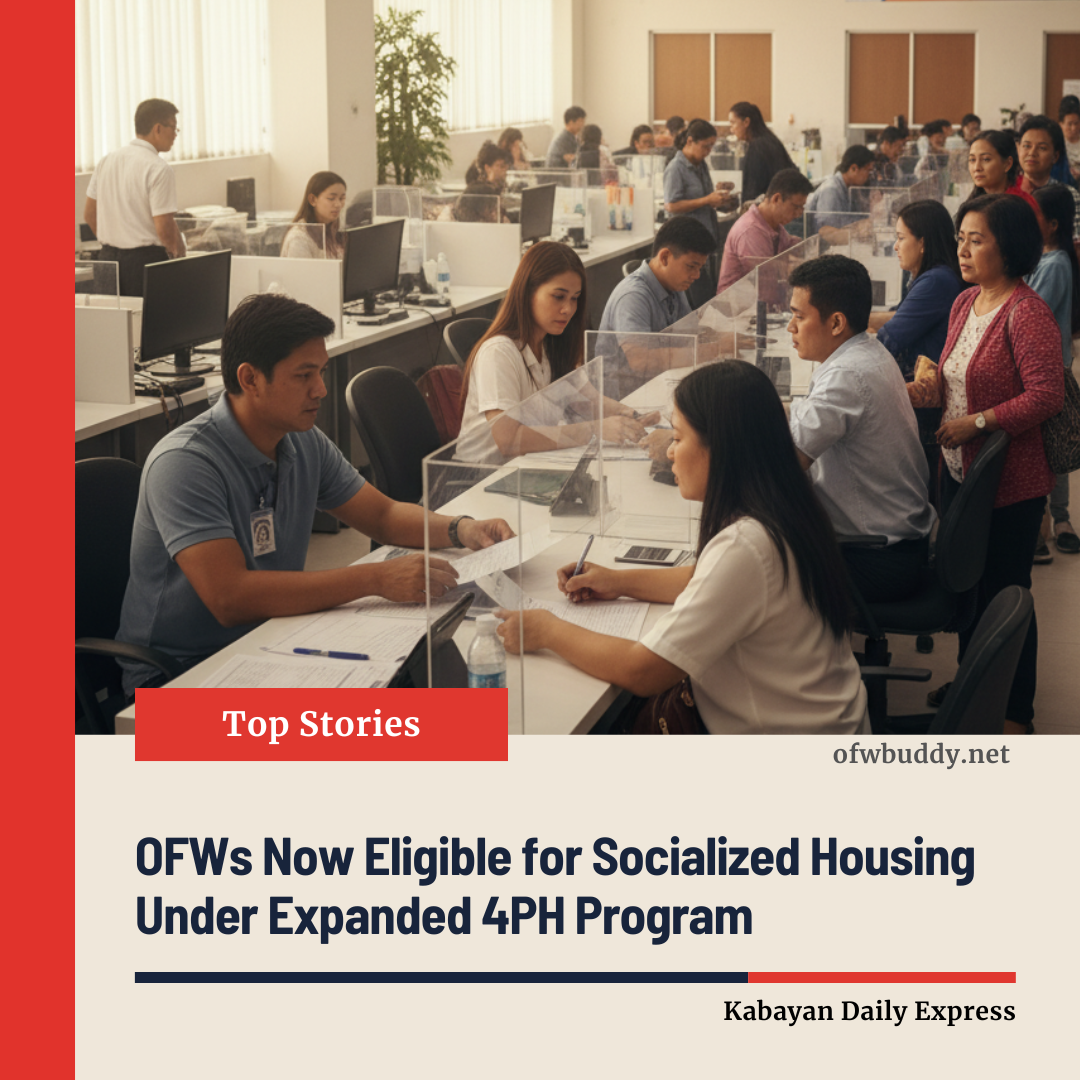Manila, Philippines — Overseas Filipino workers (OFWs) can now apply for socialized housing units under the government’s Expanded Pambansang Pabahay para sa Pilipino Program (4PH) regardless of how much they earn. The new policy aims to make homeownership more attainable for Filipinos abroad, acknowledging their vital contributions to the country’s economy.
The Department of Human Settlements and Urban Development (DHSUD) announced that the Pag-IBIG Fund has widened its eligibility rules for OFWs under the 4PH initiative. Under the updated guidelines, OFWs may submit housing applications even if their income falls outside the usual brackets, provided they fulfill standard requirements such as being a first-time homebuyer, an active Pag-IBIG member, and within the allowable age limit for loan maturity.
DHSUD Secretary Jose Ramon Benedicto Aliling said the reforms follow President Ferdinand Marcos Jr.’s directive to broaden the reach of the national housing program. He emphasized that this initiative is a gesture of gratitude to OFWs, whom he described as “modern heroes” for their sacrifices and economic contributions.
“This is one of the ways we recognize the hardships OFWs endure while being away from their families and still helping drive the economy,” Aliling said in Filipino.
Pag-IBIG Circular Expands Eligibility
The changes are detailed in Pag-IBIG Fund Circular No. 473, signed by Chief Executive Officer Marilene Acosta on July 10. The circular states that OFWs will qualify for socialized housing under 4PH regardless of income level, as long as they meet the program’s other core criteria.
Based on data from the Philippine Statistics Authority, more than 2.16 million Filipinos were working overseas in 2023. With the updated rules, a large portion of the OFW population may now access government-backed homeownership opportunities once they return to the country.
Income Rules Unchanged for Local Applicants
For locally based applicants, the existing guidelines remain the same. Only first-time homebuyers whose household income falls within deciles 1 to 7 are eligible. This covers families earning up to ₱47,000 per month in Metro Manila and up to ₱34,684 in other provinces.
Lower Interest Rates for Socialized Housing
A major enhancement under the expanded program is the reduced 3% annual interest rate, fixed for up to 10 years. This is significantly lower than the prevailing market rate of 6.25%, enabling beneficiaries to enjoy more affordable monthly amortization.
Examples provided by the DHSUD show the impact of the new rate:
-
A horizontal unit priced at ₱850,000 would have a monthly amortization of around ₱3,583, compared to ₱5,233 under regular rates.
-
A vertical unit costing ₱1.5 million would require monthly payments of about ₱6,324, instead of ₱9,235.
Additional government subsidies may also be available to further reduce costs for qualified borrowers.
Government Assures More Improvements Ahead
According to Aliling, the latest reforms are part of a continued effort to make housing both accessible and truly affordable for Filipino workers. He said the DHSUD is coordinating with partner agencies to fine-tune processes and ensure effective implementation of the 4PH program.
“In the coming weeks, we will release more guidelines to widen and strengthen the 4PH initiative,” he said. “Our mission is to give every hardworking Filipino the opportunity to have a decent and secure home.”

